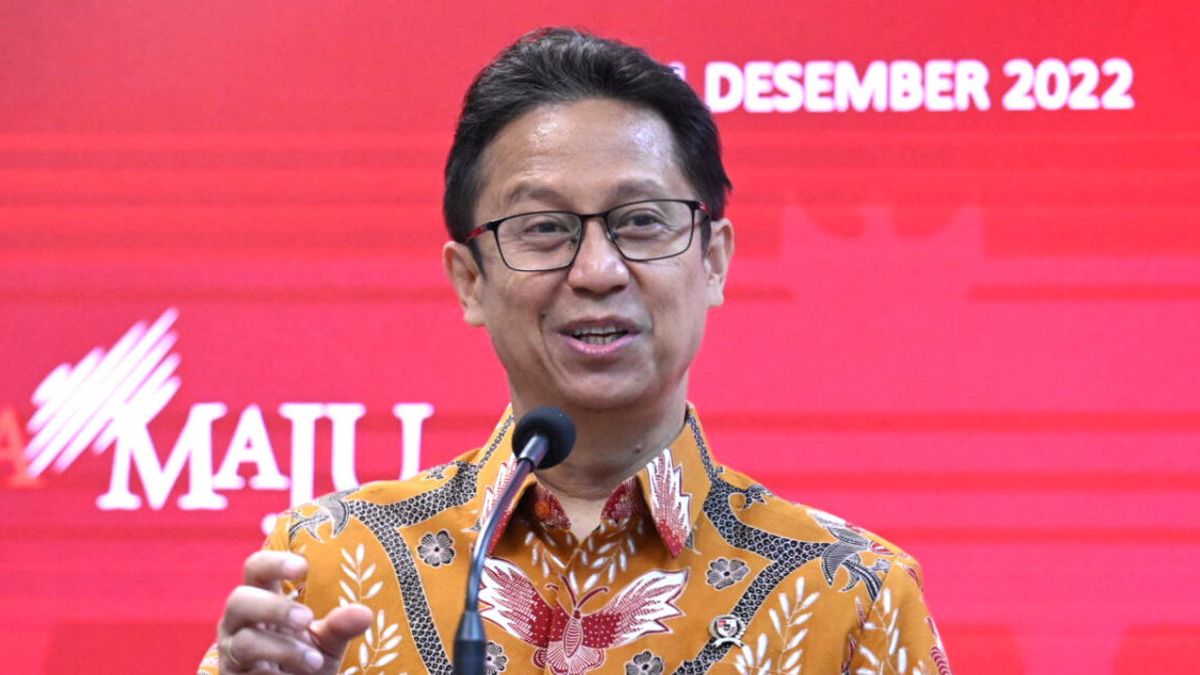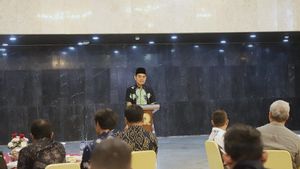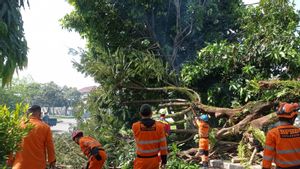Member of Commission IX of the House of Representatives Saleh Partaonan Daulay, urged the Indonesian Ministry of Health (Kemenkes) to immediately provide a COVID-19 vaccine for children aged 6-11 years. As reported, the COVID-19 vaccine for children is currently empty. Meanwhile, the implementation of vaccination for children is still not over.
"The need for a COVID-19 vaccine for children is important! Moreover, the spread of the COVID-19 virus with its various variants is still happening. People who are exposed are still increasing every day," Saleh told VOI, Tuesday, January 3. Moreover, even though the PPKM status in Indonesia has been revoked, the transmission of COVID-19 is still rampant in China. Don't let the spread of the virus repeat itself like the beginning of the pandemic two years ago and more specifically target children.
"That's what from China has entered Indonesia. The government knows that. Well, when it spreads, it usually targets everywhere. Not only adults, children can be exposed," said Saleh. The chairman of the PAN faction of the DPR assessed that the government must look for other alternatives in meeting vaccine stocks for children while waiting for domestic vaccine production.
"I heard that the Ministry of Health is currently waiting for a domestically made vaccine. That is certainly very good and wise. However, to fill the current void, the government must look for alternatives. We are also being chased by time so that the vaccination schedule is in accordance with its right," said Saleh.
Saleh said that in the last meeting with Commission IX, the Ministry of Health and the producer of the red and white vaccine had agreed to procure the vaccine. "It should be there now. If not, it means there are obstacles. We need to trace what the obstacles are to be resolved," he said.
On the other hand, Saleh added, BPOM has also given permission for the Pfizer vaccine to be injected into children. But until now it has not been implemented because it is still waiting for the assessment process from ITAGI.
Therefore, Saleh emphasized, collegial collective work from all authorities is very necessary. Everyone involved, he said, must play an active and fast role. "The bureaucratic process should not slow down and delay services for the community," he stressed again. The North Sumatra electoral district PAN legislator added that the government should prioritize child vaccines. Because according to him, child vaccination is very special because they are the nation's successors whose health must be maintained.
"I actually think that vaccination for children is very special. Their immunity to disease must be prioritized. The period of growth and school is very crucial. The government must really pay attention to and prioritize them," concluded Saleh. Previously, the Head of the Communication and Public Service Bureau of the Ministry of Health (Kemenkes) Siti Nadia Tarmizi, responded to the empty stock of COVID-19 vaccines for vaccinating children aged 6-11 years in Indonesia.
Nadia admitted that the stock of Sinovac vaccines designated as vaccines for children aged 6-11 years had run out since a few months ago. Now, the government is still waiting for a new vaccine produced by PT Bio Farma to continue vaccinating children 6-11 years old.
"We are still waiting for domestic production to be used immediately," said Nadia in a short message, Monday, January 2.
Currently, the Food and Drug Supervisory Agency (BPOM) has granted permission for the COVID-19 vaccine for children 6 months to 11 years old using Pfizer. Pfizer's stock in Indonesia is also still declared sufficient.
However, the Ministry of Health has not issued a decree to local governments to use vaccines other than the Sinovac type to children 6-11 years old.
"We are still waiting for recommendations from WHO and studies from ITAGI (Indonesian Technical Advisory Group on Immunization) and IDAI (Indonesian Pediatrician Association) to use Pfizer at the age of over 6 years," said Nadia.
In general, based on the results of the survey series, Indonesia's population immunity as of July 2022 touched 98.5 percent. This community immunity coverage increased from December 2021 which touched 87.8 percent.
As long as COVID-19 still exists, the group most at risk of contracting the corona virus is people aged 18 years and over, especially the elderly.
"This group (18 years and over) must be pursued first (vaccination) because of its higher mobility. So, this must now be pursued while waiting for the availability of vaccines for children," explained Nadia.
The English, Chinese, Japanese, Arabic, and French versions are automatically generated by the AI. So there may still be inaccuracies in translating, please always see Indonesian as our main language. (system supported by DigitalSiber.id)













